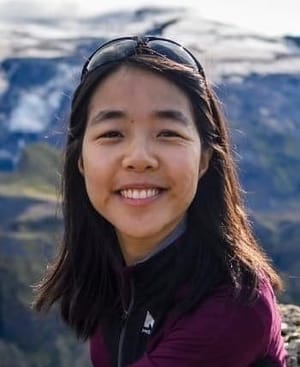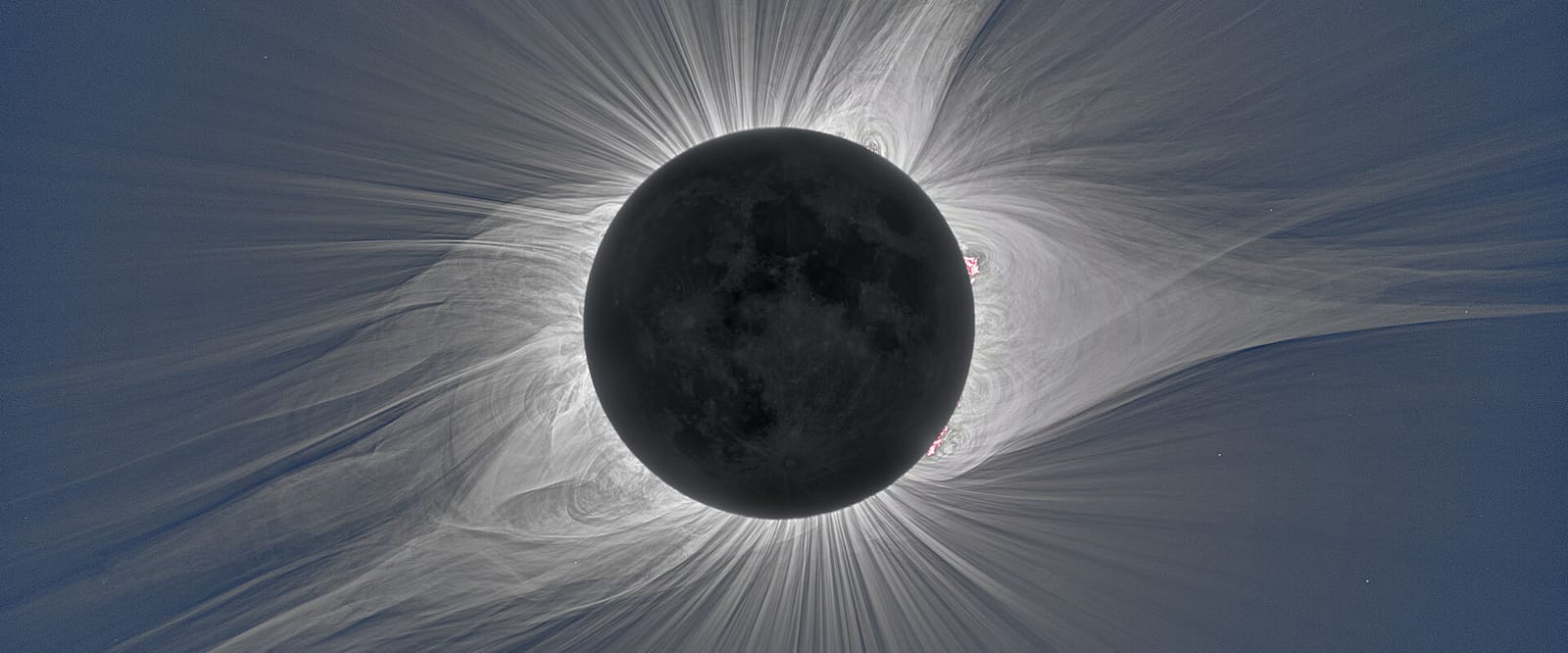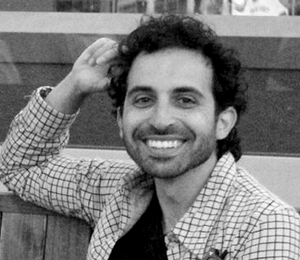Initially, I hadn't wanted to go see the 2024 eclipse. If totality is called a once-in-a-lifetime experience, I had lived it already — I was lucky enough to witness a full eclipse in 2017, in what was truly an unforgettable experience. There was no need for another go.
But my partner, a planetary scientist, is fascinated with all things outer space, so he insisted that we make the trip. He reminded me, if we missed it, the next sweep of lunar shadow across the continental US would be in 2044. This decade’s would be our first eclipse together, he added, and a romantic one at that: we could be momentarily blessed with the sight of a celestial-sized diamond ring hovering over us — a phenomenon called Bailey’s Beads when some last-ditch rays of sunlight slip past the rugged terrain of the moon.
So we went, forking out more than what I felt comfortable with for roundtrip flights and a hotel room in Indianapolis, one of the major cities that lay within the path of totality.
This would be my third eclipse. My first was a partial solar eclipse on August 11, 1999. My family and I were living in Loughborough, UK, some 200 miles away from witnessing a perfect sun-moon-Earth alignment. Still, everyone around us seemed to be making a big deal out of it. Lacking the right eyewear, my family and I made do with pin holes poked in paper and watched the universe cast crescents of light on the ground.
I was too young to appreciate the cosmic magnitude of an eclipse then. I only remember the disquiet at the sky inexplicably darkening in the middle of the day, so much so that my mother had to shepherd me and my sister indoors to watch the rest of the eclipse on TV. Soothing us, my mother explained the rare luck of witnessing an eclipse in our lifetime — the next time the moon would blot out the sun in the UK would be in 2090. She promised we would be able to see it — a mother’s unspoken wish for her daughters to live long and experience all the adventures life had to offer. But in that moment, I didn’t care so much for the eclipse, only whether Mom would still be with us then. She said she didn’t think she would make it.
What I remember most from that eclipse was not awe at the sky, but a profound sense of loneliness, the unimaginable specter for a child to lose a parent.
My mother’s prediction for herself would eventually come true, but where she erred was that I didn’t have to wait till the end of the 21st century to see the next solar eclipse. In the intervening years, I worked hard and played hard in school, moved away from home, and found myself conducting research as a graduate student at the University of Chicago. In August 2017, my graduate advisor made a surprise announcement that he would be leaving the country for a few days — precisely during the 2017 solar eclipse. On a whim, two lab mates and I snuck out of the lab and drove 330 miles south to Carbondale, Illinois, a small college town that would clock the longest totality in the entire US. We started the seven-hour drive to Carbondale in the wee hours of the morning of the eclipse. Arriving just half an hour before the event started, we watched the sun duck behind the moon from a grassy parking lot. We dashed back onto the road the instant the sun peeked out. The drive back to Chicago took us a grueling 13 hours — all that fleeing traffic from like-minded eclipse chasers did not make the return journey easy.
The second solar eclipse surely lived up to the hype (I highly recommend everyone to go see at least one total eclipse if you can). It has remained one of the few pleasant memories from graduate school I carry with me to this day. I remember the awe, the mischief of skipping work with friends, the dusty starburst that was the sun’s corona. Ad hoc eclipse chasing was worth the exhaustion of the drive and losing the next working day to boondoggling in the lab.
Seven years later, the universe would align once again, this time nowhere near where I was residing. Catching the astral occasion would require a lot more inconvenience and expense. In the age of capitalism where purveyors of the tourism industry are ready to exploit anything, even a singular cosmic coincidence, seeing the full eclipse once was enough for me, I thought. Plus, I didn’t think I could top the last one.
But there I found myself again among a sea of eclipse goers, in Indianapolis’ White River State Park on the slightly cloudy afternoon of April 8, 2024. My partner was probably more stressed than excited — throughout the day he had fretted about the weather, checking, rechecking, and checking some more for meteorological updates on TV, across multiple weather apps, on my phone, and with his own eyes as he paced in and out of the hotel. In the end, we decided to chance the weather and stay put for the eclipse, a choice that would later prove that we worried for nothing.
For an event taking place in the sky, the ground was abuzz with activity. The city had decked out its green spaces with information booths, games, a music stage, and promotional banners. A row of food trucks traced the edges of the park, drawing long lines of customers. The crowds — partygoers more than science nerds, really — were stifling, for more than just the sheer number of visitors but also the breaths held in collective anticipation. It was a world on the precipice of change.
“Are you Team Sun or Team Moon?” one observer joked to the crowd.
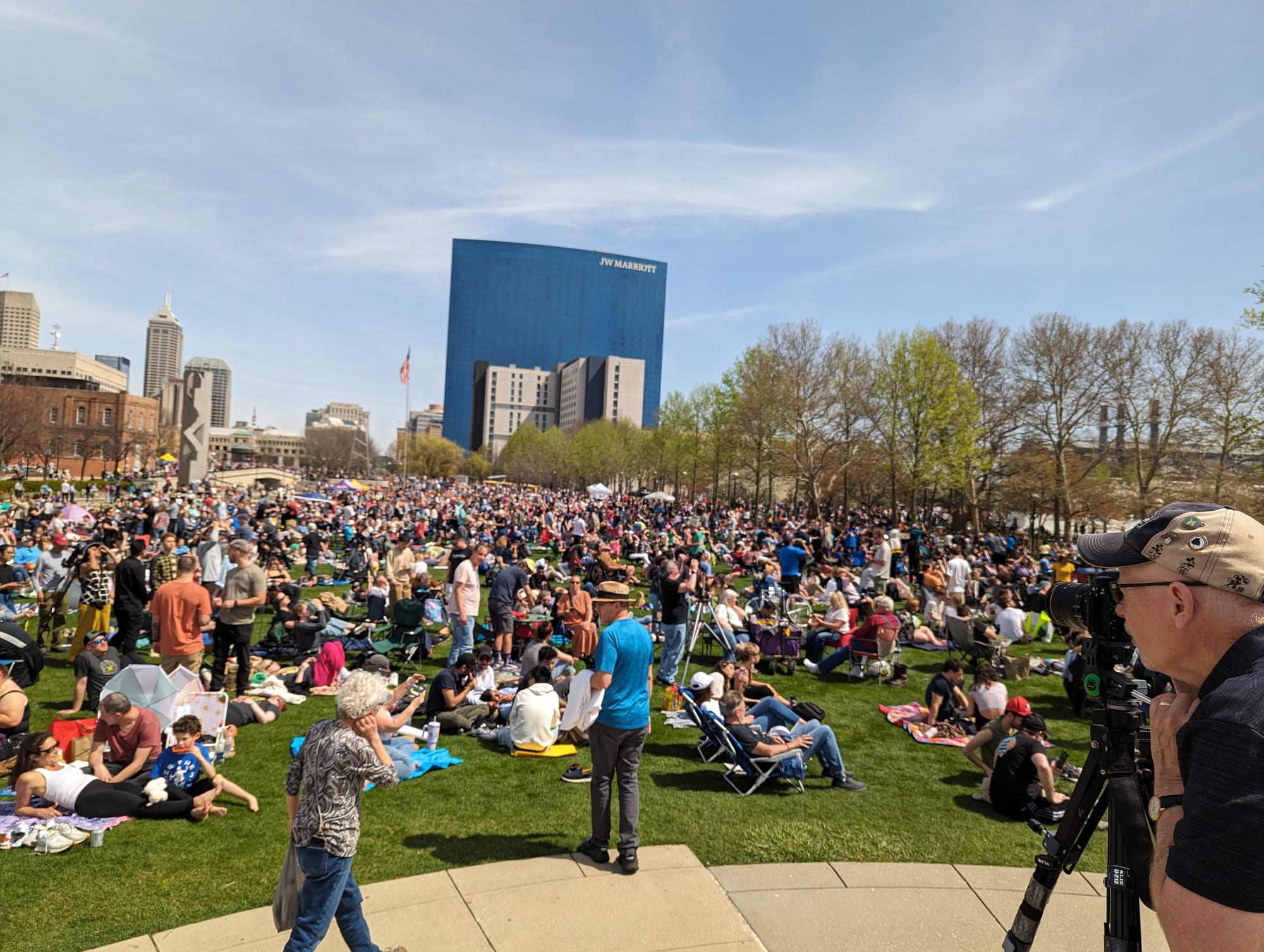
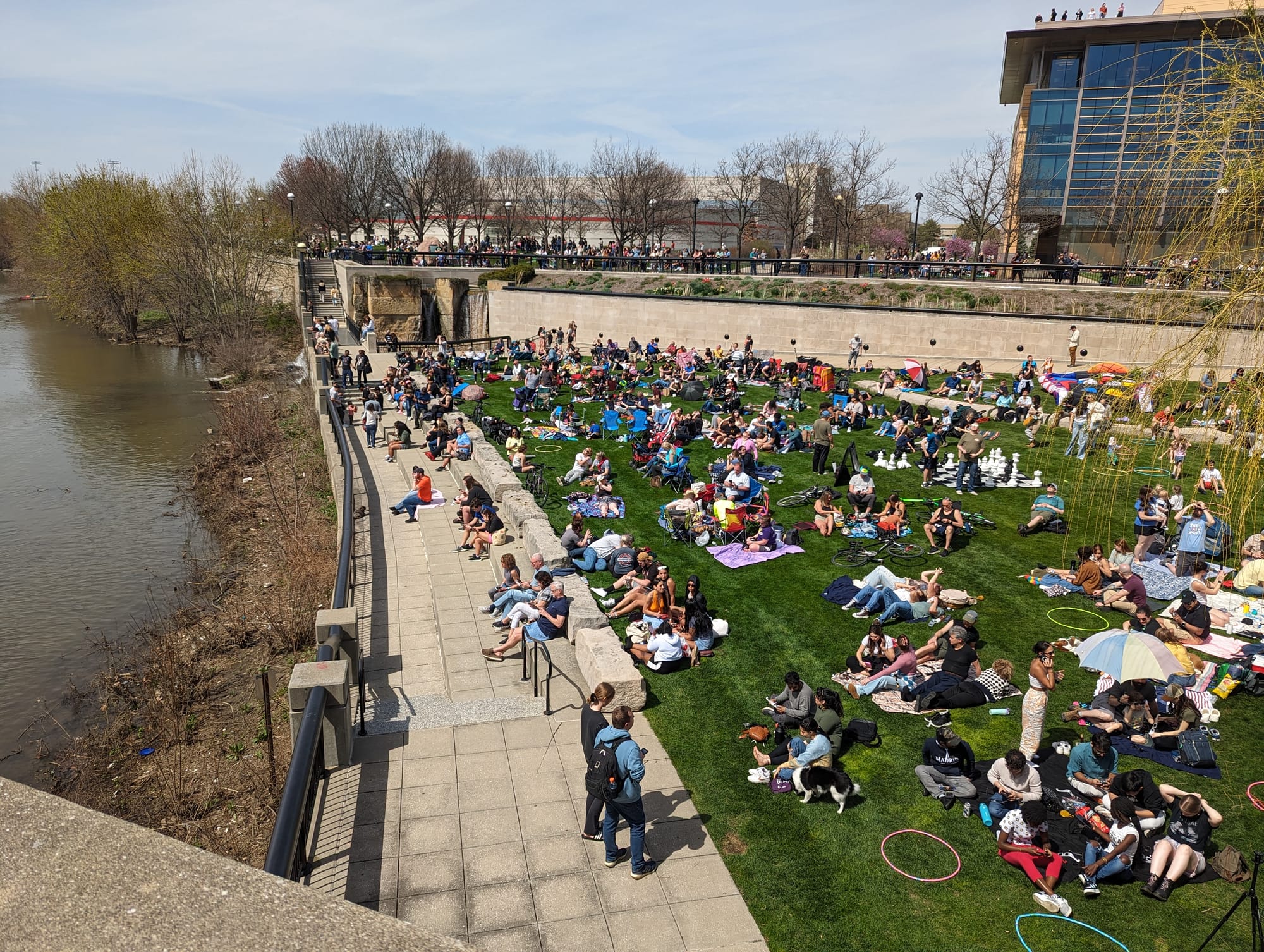
Five minutes before showtime, the day had noticeably darkened, as if the air had turned into murky glass. People in tank tops donned their jackets to ward off the plunging temperatures. Others darted from the food trucks back to their viewing spots with fresh fare in hand, racing against the inexorable march of the moon across the sun.
In the final few seconds before the sun winked out, it occurred to me how lucky Earthlings are to encounter such an extravagant celestial display. No other planet in our solar system gets to experience total eclipses like Earth does. The prerequisites are exacting: a planet’s moon and star have to sit at just the right distances, such that, from the planet’s perspective, the sun appears just the same size as the moon in the sky. Moreover, given our moon has been receding from Earth for over billions of years, gaining slack from an Earth that’s spinning ever more slowly, scientists believe eclipses are a relatively recent phenomenon, and one that also has an expiration date. Millions of years ago, the moon huddled too close to the Earth that it obscured the sun and its corona. Eclipses then probably looked no different from a regular moonless night. In another few millions of years into the future, the moon will stray too far that it’ll no longer fully cover the sun to transform the day into fleeting dusk.
Now, the sun and moon perch at what are really the optimal distances for maximum “wowing” effect. The moon will block the scorching body of the sun but not the uppermost reaches of its atmosphere. An ethereal halo, this corona will give the photobomber the appearance of wafting gentle flames to any viewer standing in the lunar shade millions of miles away.
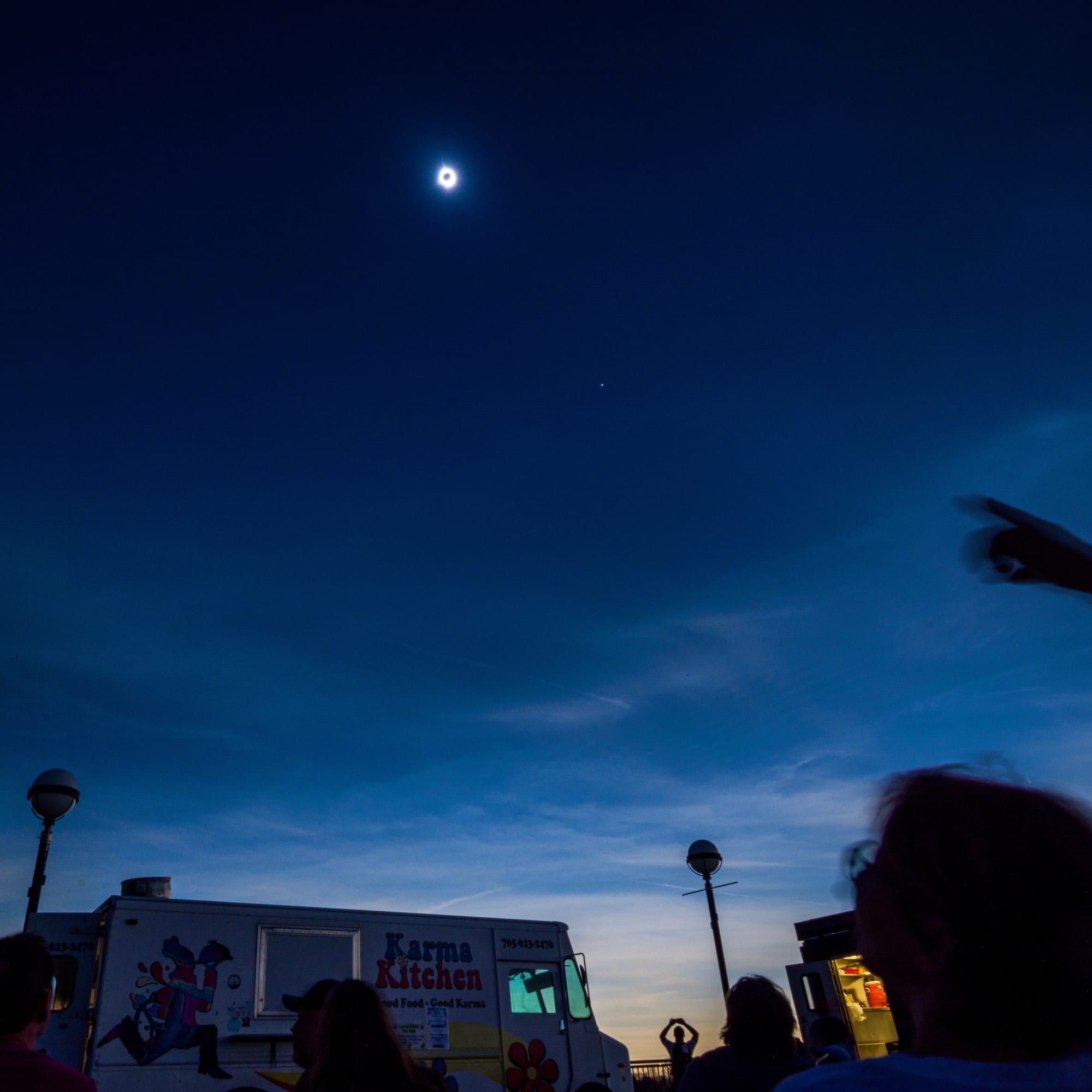
The last two solar eclipses I’d seen had given me more than just a grand spectacle. At the heart of my solar eclipse chases weren’t celestial orbs but people, strangers and loved ones coming together for something larger than our collective humanity. Eclipses aren’t just freak occurrences but also mile markers of life, of the growth we’ve earned and of the distances we’ve traversed in the interleaving years. Some of my favorite memories of my mother and grad school were forged under the shadow of the moon embracing the sun. While eating breakfast in my hotel in Indianapolis, of all places, I bumped into an old graduate school classmate whom I hadn’t seen in over six years. Eclipses bind more than stars and moons and planets — they also bring together faces old and new, all which will lift toward the heavens at the same moment.
As the last sliver of sun rays vanished behind the moon, solar eclipse glasses dropped, hands now free broke into easy applause. For nearly four minutes the world plunged into darkness, and old memories came flooding back.

